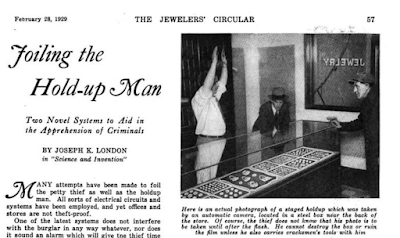 We are headed deep in the lexicographic woods today. If that's not your jam you have my blessing to move on.
We are headed deep in the lexicographic woods today. If that's not your jam you have my blessing to move on.
As I mentioned previously, at Bouchercon I was on a panel about librarians and we prepared a webpage of resources for our audience. I wanted to included Google Ngram Viewer, which allows you to trace the use of a word or phrase over centuries.
Here is what I wrote:
Google Ngram Viewer. Search millions of books and journals for words and phrases. Great for writing historicals. When did the phrase “the jig is up” start appearing in print? When did it become popular?
I picked that phrase as the first crime-fiction-related term that popped into my head. But after the conference I decided to take a closer look at what Ngram came up with. And the result surprised me.
So, do me a favor and think for a moment. What does the phrase "the jig is up" mean? In what context do you expect to find it? If you are ready we will proceed...
I became aware of the book when I was writing an essay about a different word: "slinky."
But here is Mr. Haliburton on our phrase for the day:
The jig is up with Halifax and it's all their fault. If a man sits at his door and sees stray cattle in his field, a eatin up his crop...why I should say it sarves him right.
Fair enough. But does that match the meaning I asked you to fix in your head?
The next hit I found was a Dictionary of Americanisms from 1860. That book says the phrase means "The game is up. It is all over for me." And that seems like a good fit with our Canadian friend.
But it isn't what the phrase means to me. Here is what a modern dictionary says about it: the scheme or deception is revealed or foiled. "the jig is up; you've had your last chance."
Exactly! You might say that the modern meaning is a subset of the older one. The phrase used to mean something was over. Now it means something dishonest is over. My example would have been something like: "The jig is up, Bugsy. We've called the cops."
So when did the change happened? I suspected that, like so much criminal slang, we owe it to Prohibition. (For example, Donald E. Westlake pointed out that "hardboiled dick" is a combination of World War I military slang with French-Canadian Prohibition jargon.)
Let's get on the trail and see what we can find out.
In 1877 in The Innocents Abroad, Mark Twain wrote about people despairing and saying "The jig is up." Definitely the old meaning.
In 1881 Sheridan Mack quoted a man talking about a woman who left him: "The jig is up and I ain't the fella to squeal on her. Matilda is as gay as a peach and I ain't gonna get all spoony."
In "The Flag Paramount," written by O. Henry in 1902, a character uses the term to say a Latin American revolution is over. Still the old meaning.
Next Ngram pulled up an article from The Moving Picture World (1916). Describing the movie The Defective Detective the writer said that when a policeman enters the room "the jig is up." Now we're getting it!
Next comes a 1923 article from a magazine with the unlikely name of The Lather. 1923. It turns out to be the publication of the Wood, Wire, and Metal Lathers Union. This is part five of "A Confession" by an "Ex-Under-cover Man" about his infiltration of factories.
 It's clear that by now we have the modern meaning, but I can't resist one more source. In 1929 Joseph K. London wrote an article for The Jeweler's Circular on new methods to foil a hold-up man. One involved taking the fiend's photograph. When he sees the flash he knows "the jig is up.'"
It's clear that by now we have the modern meaning, but I can't resist one more source. In 1929 Joseph K. London wrote an article for The Jeweler's Circular on new methods to foil a hold-up man. One involved taking the fiend's photograph. When he sees the flash he knows "the jig is up.'"What none of these examples does is help explain why the phrase exists at all. Why isn't it "the jig is down?" Or, for that matter, "the hornpipe is rotund?"

